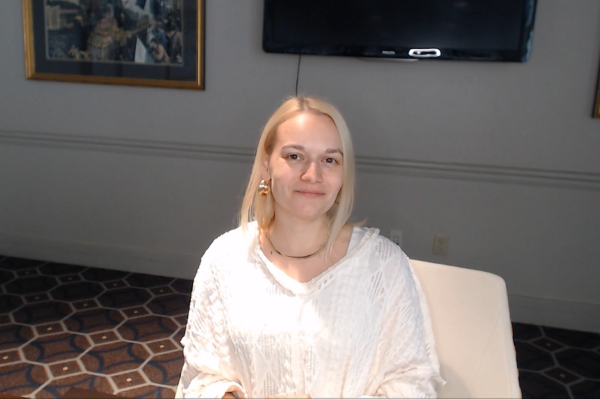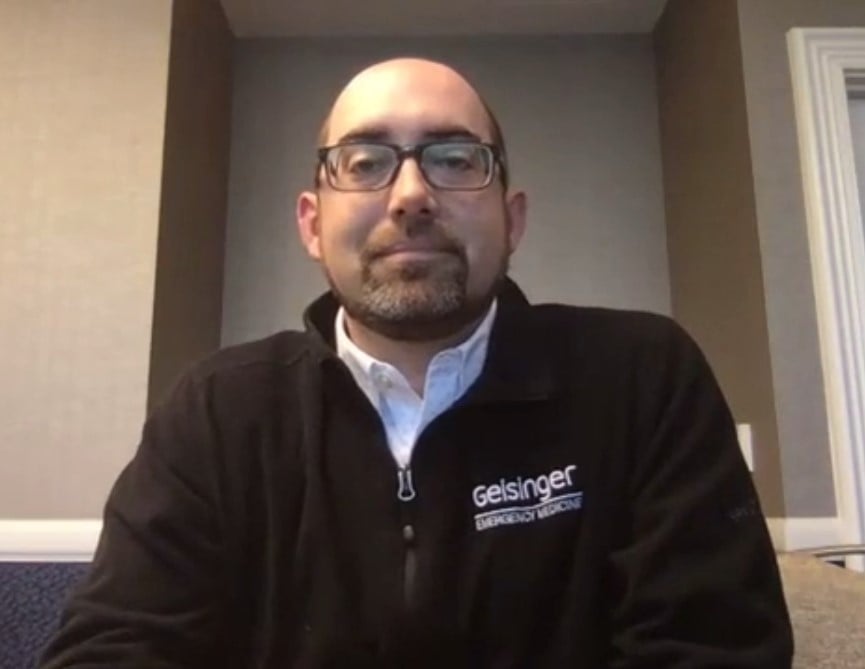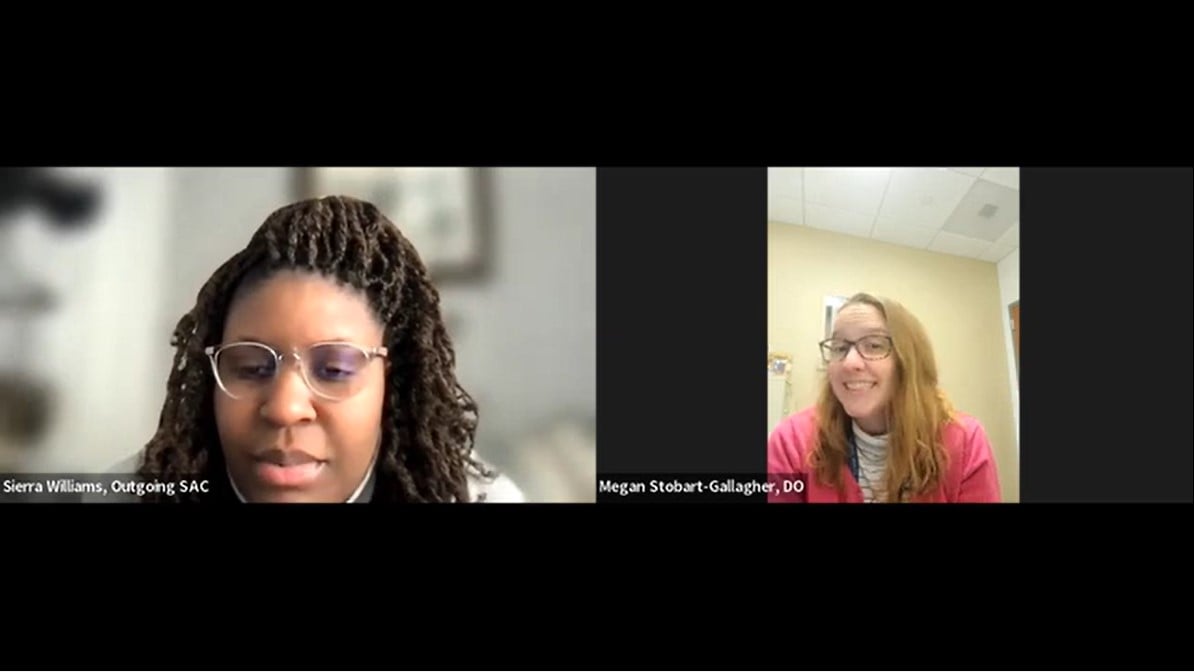Program Director Interview Series: David Snow, MD, Loyola Medicine Emergency Medicine Residency Program
Peyton Lehman, MS3
University of Minnesota
EMRA MSC Great Plains Regional Representative
Grey Braybrooks, MS3
Case Western Reserve University
EMRA MSC Great Lakes Regional Rep
Alexander Luke Alley, OMS4
University of Pikeville
EMRA MSC Midwest Coordinator
David Snow, MD, is the program director of the Emergency Medicine Residency program at Loyola in Chicago, Illinois. Read on to learn more about the unique culture that sets this program apart and the many opportunities and benefits EM residents are exposed to, as well as some ways applicants can stand out during the Match process.
- What sets your program apart from others?
- There is so much to think about with this question. First and foremost, we are a large academic hospital, with Loyola Stritch School of Medicine as our affiliated medical school, a Level 1 Trauma Center, Comprehensive Stroke Center, and everything else that you would expect regarding the patient population that we serve. These things, however, are not unique to us, but they give us a solid foundation to build upon.
- I think our program size and our approach to residency training have allowed us to create something truly unique at Loyola. One of the most incredible things for me to hear from our residents, and something I strive to maintain in every year I have been at Loyola, is hearing a resident say, “I am so glad I came here for my training”. As I think through the experience for them, I’ve always been struck by how important it is to individualize the approach as much as possible, as every resident is coming at their training from a different perspective, with different backgrounds, different skills, different passions, and indeed different personal lives. The more I can learn about them, and learn about these different areas, the more it allows us to work with them to maximize their time in residency with us.
- Put simply, the more people feel appreciated, and the more you can work with them to ensure they are able to be present for things in their lives that are important to them, the more they are able to put into their job. That sense of family, of camaraderie, is so central to our residency. This then allows us to push the clinical aspect, push the extra-curricular needs in a way that the residents welcome the challenge, knowing the other important pieces are in place.
- What are the benefits of attending a 3 vs. 4-year EM residency program?
- I honestly think it all comes down to what you want from your training. I trained at a 4-year institution and loved my time there. That additional year allowed me to focus on my skills of teaching and education. I have realized in ~12 years of being in residency leadership at 3-year institutions that you can also focus on those things in a 3-year residency.
- I went into my own interview season with no pre-determined thought of what I wanted regarding 3 vs 4. I wanted to be at a place that I knew would be able to train me well, and that I felt a great connection with on the interview day. If you approach your interviews and ultimate selection in the same way, I have no doubt it will work out the very best for you.
- What is something students may not know about your program?
- Our hospital is in an area of the Chicago suburbs without another large tertiary/quaternary center close by, and with a lot of communities in the surrounding areas who really rely on our hospital for their care. All this together means we have a patient population to serve in our ED that is so very varied, across the full spectrum of Emergency Medicine. From the medically complex (LVAD, Transplant, etc) to the patient with poor access to care, we can provide an experience to our residents that will leave them feeling comfortable in any ED after graduation.
- Along with this, we were very fortunate to receive a huge sum of money from the Keeley family, to develop the Barbara G. & John L. Keeley, Jr. Center for Emergency Medicine Education. This opens so many doors for our residency, from funding different aspects of their residency education, to allowing us to fund additional ventures for those with specific interests, e.g. the ACEP Teaching Fellowship for those interested in Medical Education. It is hard to overstate just how important this has been in our growth and development, and will be in the future, as we continue to grow and add Fellowship opportunities.
- What range of USMLE/COMLEX Step/Level 2 scores do you look for in an applicant for the program? Or alternatively, how do you feel about the change to pass/fail Step 1 grading?
- I love answering this. There is no range. There has never been a range. We have ~30+ different pieces that we pull from each application, a rubric that has been built from our Mission Statement, trying to find those applicants that we feel will be the best fit for our residency. The pass/fail piece doesn’t matter, as it is one small data point amongst so many others.
- What kinds of research opportunities exist? Do you look for residency candidates with research experience?
- This is certainly an area of continued growth in our department. We can navigate this successfully with our residents and have seen our residents present at all major EM conferences in the past few years. We do not necessarily ‘look’ for those with research experience, again it is just a data point in the scoring rubric, but for those with research we do want to ensure whatever you may want from your training is something we can provide. Our Specialty tracks allow those with certain passions, e.g. Medical Education, Sports Medicine, to really explore these specialties, attend conferences, conduct and present research, and allow us to fund further opportunities to help them explore. It is just one piece of their journey in residency.
- Does your institution offer opportunities to explore global health?
- Absolutely, Dr. Theresa Nguyen is one of our faculty, and the Director for the Center for Community and Global Health at Loyola Stritch School of Medicine, the Co-Director of our Street Medicine program, and the Specialty Track Director in our residency for this area. Through her work, and the work of her team, there are so many different areas for residents to focus on, both locally and internationally.
- On the local side, there are so many areas for residents to be involved in, again given the surrounding communities that we serve. From Street Medicine to CTA Blue Line opportunities, the Night Ministry, the Quinn Community Center, and so many others, our residents are able to give back and be a part of their hospital’s communities. We have integrated these experiences into both our Orientation Rotation and our Core Curriculum during residency, to ensure every resident is able to be a part of this.
- On the International side we have existing rotation opportunities in Bolivia, Ghana, Vietnam and Peru. However, if there is another area a resident would wish to be involved with, we will work with them to make the necessary arrangement.
- What qualities does your program look for in applicants?
- It is really the full spectrum of attributes and qualities. We want people who want to come here and make this residency better than it already is. Those people who are not just happy being passive in their residency training but are looking to push us to make sure we help make the most of the 3 years they are with us.
- What attributes or experiences make applicants stand out?
- I’d probably repeat myself if I answered this further, but building on the above answer, mainly it is people who want to be at Loyola, who want to be a part of this incredible residency we are continuing to push forward and want to do so in an environment where everyone is working together to make the most of the time we have. I love seeing the connections between all three classes, seeing them together both at conference, and outside of the hospital. Seeing them taking time after conference to just be together because they want to be.
Related Content







